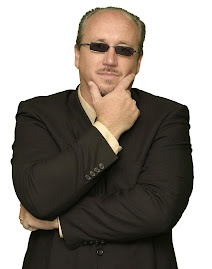Wait, what? Did you catch the paradox? If the sentence is false then it must be true, but if it is true then it must be false so if it is false it must be true ... .
Paradox was a plaything of Greek philosophers. Epimenides wrote down the first documented one around the sixth century BC. He, who was from Crete, stated "All Cretans are liars." Their logic attempted to unravel the paradox and succeeded with many of them by simply defining their terms and coming up with the difference between language of instruction and the language of reality (vs. Absurdity). Other Greeks decided they could just live with a few contradictions.
Bertrand Russell asked "In a village, the barber shaves everyone who does not shave himself/herself, but no one else. Who shaves the barber?"
Even normal life fills us with paradoxes: "Don't go near the water until you have learned to swim." or "Nobody goes to that restaurant; it's too crowded" or "If you get this message, call me, and if you don't then don't worry about it" of "Raise your hand if you are not here."
Scripture is also FULL of these seeming paradoxes. You must die in order to live. You must give in order to get. If you are comfortable you should be uncomfortable. And many others. Opposition to God and scripture make fun of these and even create their own paradoxes: "If God is almighty and creator of everything can he create a stone too heavy for him to lift?" and "If God is good he cannot be almighty because there is bad in the world, if God is almighty then he cannot be good since he allows bad in the world."
These paradoxes are easy to unravel but there are paradoxes in the world that seem to question life's order and spiritual meaning. There are simply questions that we CANNOT answer. Maybe because there is no answers or resolutions. Quantum and Newtonian physics or light as a wave or a particle or chaos theory. Or simply the question of how and why we love? Maybe it is the conflict, the paradox, the journey that is important and not the resolution. Or not.
Which one of you said, "The truth is rarely pure and never simple."? Whoever is was, you're a liar... or ... telling the truth.
Subscribe to:
Post Comments (Atom)

No comments:
Post a Comment